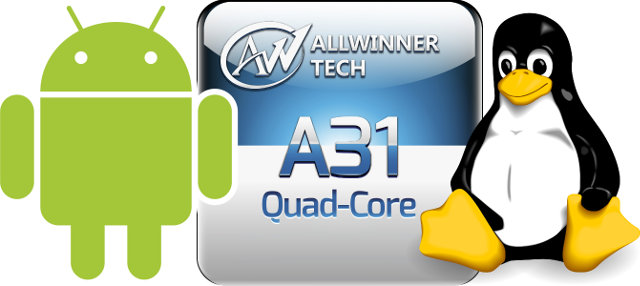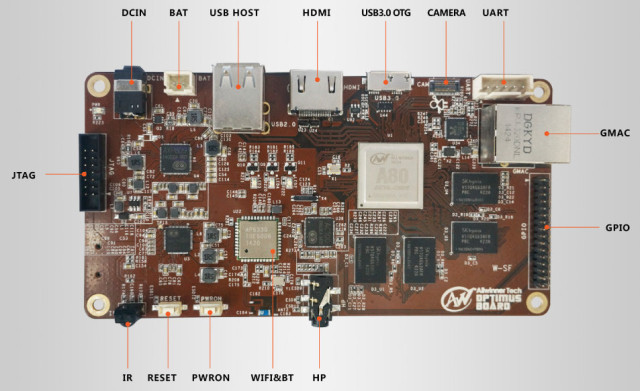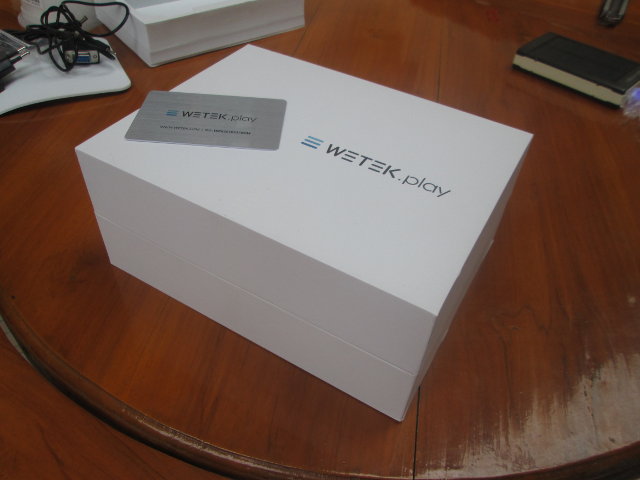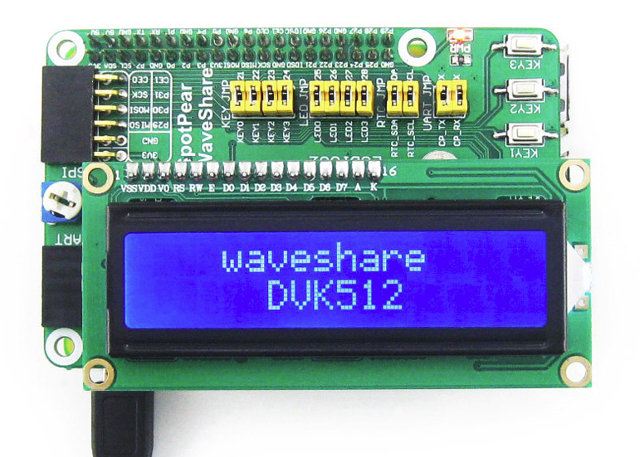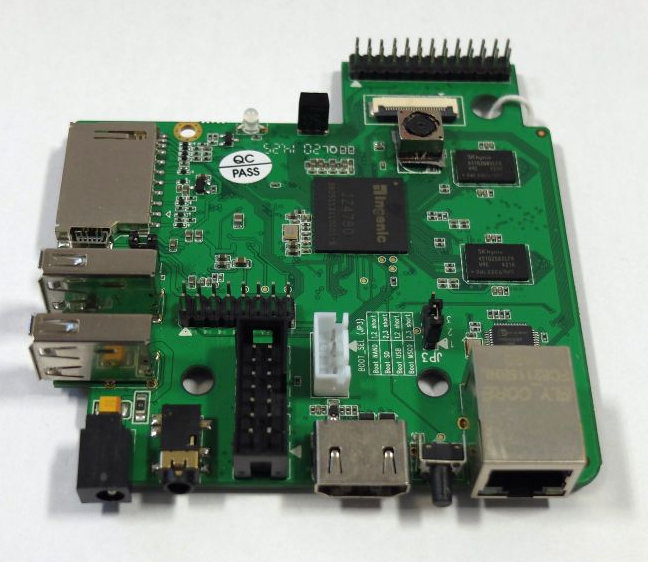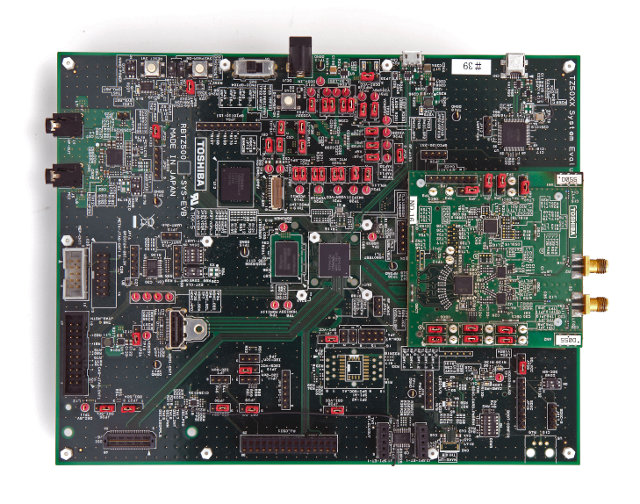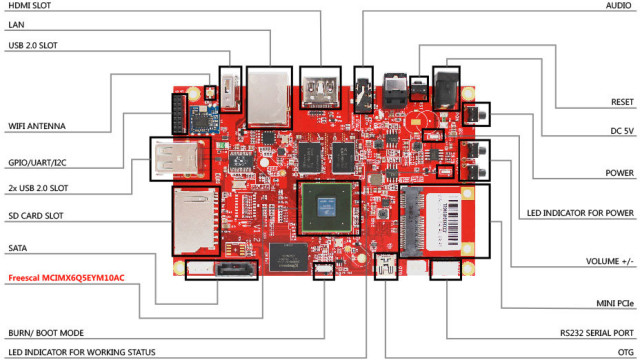AllWinner A31 software development kits (SDK) for Android 4.2 / 4.4 and Linux can now be downloaded, and relevant documentation has also been made available, including HummingBird A31 system brief and system manual. Part of the documentation is in English, but lots of it, is in Chinese only. Download links to AllWinner A31 SDKs for HummingBird A31 development board, but they may be useful for other hardware platforms based on AllWinner A31: Android 4.4 SDK (password: 5ck9) – a31_v4.5_hummingbird_kfb_ok.tar.gz (6.04 GB) Android 4.2 SDK (password: tz17) – a31_hummbingbird_V3.3_v2_kfb_0k.tar.gz (3.99 GB) Linux SDK (password: kdcw) – A31_MerriiLinux_V3.3_v1.tar.gz (1.17 GB) There are also links to firmware files specific to HummingBird: Android 4.4 firmware LCD output (password: w1s6) Android 4.2 firmware LCD output (password: b7de) Android 4.2 firmware VGA output (password: nfqw) Linux firmware (password: ibal) It takes a very long time to download the SDKs, so I haven’t checked the files, and […]
AllWinner A80 OptimusBoard Octa-core big.LITTLE Development Board is Now Available … for $169
A80 OptimusBoard powered by AllWinner A80 octa-core processor with four Cortex A15 and four Cortex A7 in big.LITTLE configuration had been announced at the end of 2013, and after numerous delays, several boards have recently been sent to developers and companies such as miniNodes, Linuxium, and others. The company behind the board is actually Shenzhen Merrii Technology (aka WITS), which had done all earlier development kits for AllWinner, and they’ve now made the board available for purchase on Aliexpress. Unfortunately the company has decided to leave to low cost development boards market to the likes of Cubieboard8 and PCDuino8, as A80 OptimusBoard sells for $345 plus about $30 for shipping by courier.[Update: they now offer it for $169] SoC – AllWinner Ultra Core A80 4x Cortex 15, 4x Cortex A7 big.LITTLE processor with Imagination Technologies PowerVR GC6230 GPU with 64-cores, and support for OpenGL ES 1.1/2.0/3.0, Directx 9.3 System Memory […]
Unboxing of WeTek Play DVB-S2 Android / Linux STB
WeTek Electronics, a company based in Hong Kong, has sent me an Android TV powered by Amlogic AML8726-MX dual core Cortex A9 processor. Nothing new here, but I was very very interested in reviewing it because it includes a DVB-S2 tuner, and on top of their stock Android firmware, the company provides various Android and Linux firmware files such as CyanogenMod, ParanoidAndroid, OpenELEC, Linux with Enlightenment desktop environment, Lubuntu 14.04 and so on. Today, I’ll list the hardware specifications of the device, show some unboxing pictures and video, and as usual, open the device to see what’s inside. I’ll provide a full review in one or two more posts. WeTek Play Specifications Apart from the DVB-S2 tuner are the serial port, the hardware specifications sound familiar: SoC – Amlogic AML8726-MX dual core Cortex A9 @ 1.5GHz with Mali-400MP GPU System Memory – 1GB DDR3 Storage – 4 GB NAND flash […]
Waveshare DVK512 Kits For Raspberry Pi Model B+ Include RTC, Sensors, LCD Display, and More
Beaglebone (Black) expansion boards are called capes, Minnowboard ones are lures, and Raspberry Pi model B+ add-on boards can be HATs (HArdware on Top). When I found a kit for the Raspberry Pi model B+ on DealExtreme, based on Waveshare DVK512 add-ons board I thought it might have found a Chinese HAT, but unfortunately it is not compliant with HAT board specifications as it misses an EEPROM,and the dimensions are not the correct one either. Nevertheless, the kit, as well as extra accessories such as a 3.2″ LCD display, can still be interesting. The kit on DX comes with the following items: DVK512 expansion board that connects to the 40-pin Raspberry Pi B+ header and features PCF8563 RTC chip with battery, an on-board USB to TTL chip for debugging via micro USB, a character LCD interface, connectors for modules connected via UART, SPIO, I2C or GPIO, various jumpers and user […]
MYIR ARM9 Linux Development Boards & Computer-on-Modules Powered by Freescale i.MX28 Processor
MYIR MYD-IMX28X development boards and MYC-IMX28X CPU modules had been announced in May 2014, but I’ve just found out about them via the company’s newsletter. The CoMs are powered by Freescale i.MX28 ARM9 processors (i.MX283 or i.MX287), feature 128 MB RAM, 256 MB Flash, and connect to a baseboard to make the development boards. Target applications include smart gateways, human-machine interfaces (HMIs), handheld devices, scanners, portable medical, experimental education as well as other industrial applications. MYC-IMX28X CoMs MYC-IMX28X computer-on-module specifications: Processor – Freescale i.MX283 or i.MX287 ARM926EJ-STM processor up to 454MHz with 128KB SRAM, 128KB ROM, 1280 bits of OCOTP ROM, 16KB/32KB I and D Cache System Memory – 128MB DDR2 SDRAM Storage – 256MB NAND flash, 128KB SPI flash Connectivity – On-board Ethernet PHY Connectors – 2x 1.27mm pitch 2 x 40-pin SMT male expansion connectors with access to Ethernet – Up to 2 Ethernet (two for i.MX287, one for i.MX283) USB […]
MIPS Creator CI20 Development Board Powered by Ingenic JZ4780 SoC
There are plenty of ARM based development boards running Linux and Android, but with MIPS it’s a different story. Microchip does have some affordable development board powered by their MIPS MCUs, but these don’t have the hardware specs to run Linux based operating systems, and Ingenic Newton Platform for wearables can run Android and Linux, but it appears to be reversed to companies with virtual no documentation. There are some MIPS platform running OpenWRT on hardware such as routers or Wi-Fi boards, but these can’t be considered fully supported development boards. But Imagination Technologies is trying to make MIPS more relevant, first by launching Prpl developers’ community, and MIPS Creator CI20 development board powered by Ingenic JZ4780 dual core MIPS32 (Xburst) core processor with PowerVR SGX540 GPU should soon be available with complete documentation and source code. Let’s go through the hardware specifications first: SoC – Ingenic JZ4780 dual core […]
Toshiba TZ5000 ApP Lite Media Player Development Kits Run Android 4.4 and Ubuntu Linux
Toshiba has recently announced two development kits powered by their TZ5000 ApP Lite SoC featuring two ARM Cortex A9 cores, PowerVR SGX540 GPU, PowerVR VXD395 GPU, an optional 4GB MLC NAND, and Ensigma C4500 Wi-Fi baseband engine into a single chip solution that targets Over-The-Top (OTT) tuners and IP media boxes, wearable devices, digital signage, thin clients, and more. The first development kit, RBTZ5000-6MA-A1, is a full size board that supports Ubuntu, the other one, RBTZ5000-6MA-A1, is an HDMI stick form factor board running Android 4.4. Toshiba RBTZ5000-2MA-A1 Board (Ubuntu) RBTZ5000-2MA-A1 Starter Kit specifications: SoC – Toshiba TZ5011XBG dual core Cortex A9 processor @ 1.0 GHz with PowerVR VPU and GPU, and Ensigma C4500 Wi-Fi baseband engine System Memory – DDR3L-1600 Storage – 8GB eMMC (external) + MicroSDXC Connectivity – Wi-Fi 802.11a/b/g/n/ac 2×2 MIMO (via Ensigma C4500), Bluetooth 4.0. Ethernet is available via a daughter board connected to ADB. USB […]
OpenELEC Ported to TBS 2910 Matrix Board Supports DVB T/S/C, DVR and IPTV Server Functions
TBS 2910 Matrix, also simply called TBS Matrix, is a board powered by Freescale i.MX6 Quad SoC with 2GB RAM, 16 GB eMMC, and supporting various TBS USB DVB tuners. The company provides images for Ubuntu, Android, and something called Matrix TV. The company also releases the source code for the boards, and two OpenELEC developers, namely Ovi and Vpeter, though it could be a nice idea to port OpenELEC to TBS Matrix, and that’s exactly what they did. The video demo below shows online video streaming via 1channels add-on, which can be done with any Android or Linux media player running XBMC or OpenELEC, but the second part is more interesting, as it shows Live TV from a Cable TV USB tuner connected to the board. Ovi also confirmed the system supports DVR, and you can also use the board as a micro IPTV server. DVR function is supported […]


